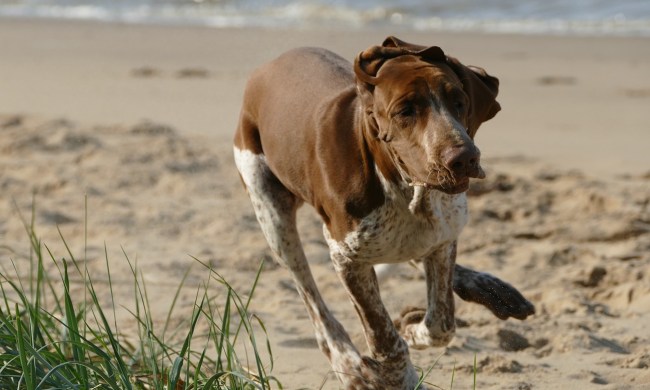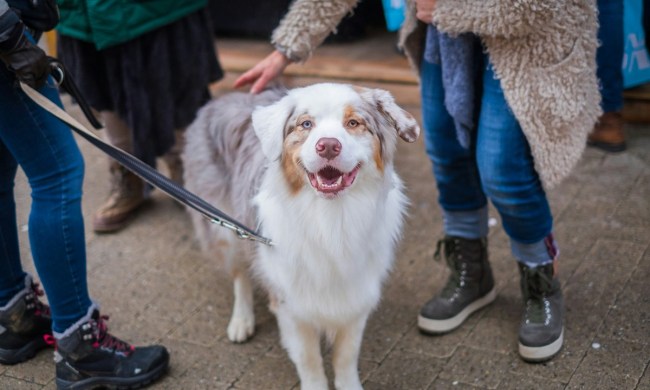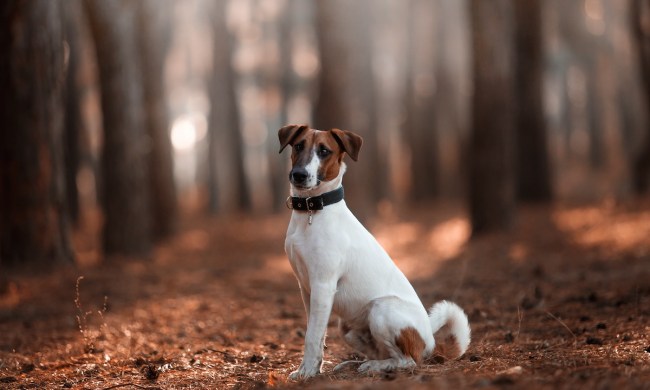Where should dogs sleep at night? Well, if you snuggle up at night beside your dog you have lots of company. A Novosbed.com sleep survey revealed that a whopping 71 percent of pet owners sleep with their animal companions. Dog owners say that sleeping with their four-legged friends provides them with a sense of comfort and security. This feeling appears to be mutual. A 2020 British study on the sleeping habits of dogs found that 85 percent of puppies chose to sleep near a human when given the opportunity. So, where are the best places for your dog to sleep? Read on for some things to consider.
1. Sharing your bed
According to a Psychology Today article, there’s a growing body of research showing positive results and benefits from sleeping with pets, including among people with sleep disorders and medical conditions.
Will sleeping with you make your dog dominant?
Many trainers believe that dogs who sleep in owners’ beds become dominant or spoiled. However, experts at the American Kennel Club (AKC) say that there’s no problem with well-adjusted, well-behaved dogs sharing a bed with owners. And in a Whole Dog Journal article, certified dog trainer Pat Miller writes: “The dog who wants to sleep on your bed isn’t trying to take over the world. He just wants to be close to his humans and comfortable!” If your dog does show negative behavior tendencies when on the bed send him to a separate sleeping space and enlist the help of a trainer, say AKC experts.
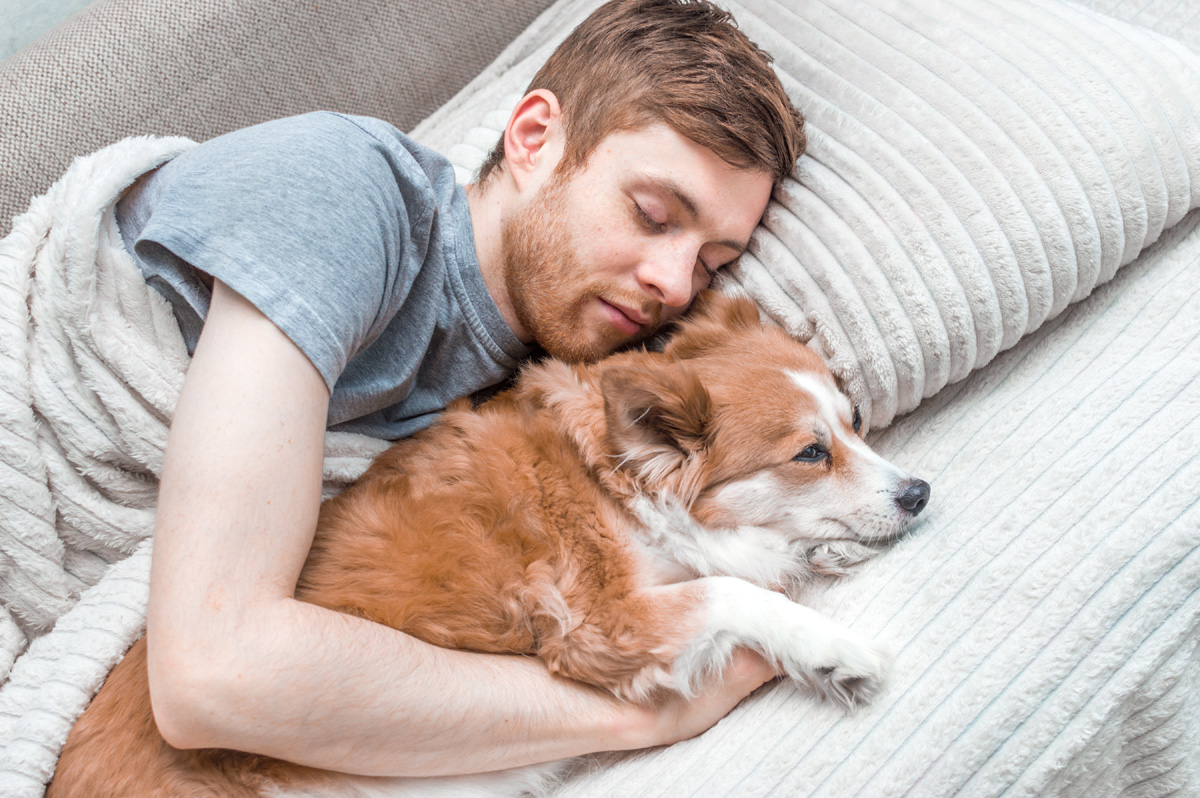
Pros of sleeping with your dog
- An interesting study of 962 adult women in the U.S. found that dogs disturbed sleep less than human partners and offered a greater sense of comfort and security.
- Research shows that being around our dogs reduces stress levels and lowers our heart rate. So sleeping with our dogs may provide for a more restful night.
- Experts say that sleeping with pets helps strengthen the human-animal bond.
The cons of sleeping with your dog
- Dogs who aren’t housebroken can have accidents on the bed.
- Sleeping with dogs isn’t healthy for people who suffer from allergies.
- Depending on the size of your bed, large dog breeds may hog the covers and the space. Also, dogs who snore, are restless, or bark at outdoor sounds make it difficult to sleep through the night.
2. Sleeping in a crate
According to the AKC, crate training is an essential part of housebreaking puppies or newly adopted dogs as they don’t like to soil their sleeping quarters. When introduced properly and at a young age, many dogs see their crates as a safe space where they can relax and sleep. It’s important to choose a high-quality crate pad that will provide a warm comfortable bed for your dog. Once housebroken and past the destructive chewing stage, some pet parents choose to let the crate door open for their dogs at night.
Make sure the crate is the right size for your dog
Your dog should be able to comfortably stand up, move around, and lay down in his crate. Chewy.com offers a helpful crate size chart along with instructions on how to measure your dog when choosing a crate.
Pros of using a crate
- Safely confining your young dog to a crate at night means you can sleep soundly.
- Crates offer a safe place for adopted dogs who may feel insecure in their new homes.
- Crates are a safe option for senior dogs who suffer from nighttime wandering.
Cons of using a crate
- If your dog isn’t crate-trained at a young age he mightn’t be happy sleeping in an enclosed space.
- When crate training isn’t done correctly, some dogs may see it as a punishment.
- Crates are not a good option for dogs with separation anxiety.
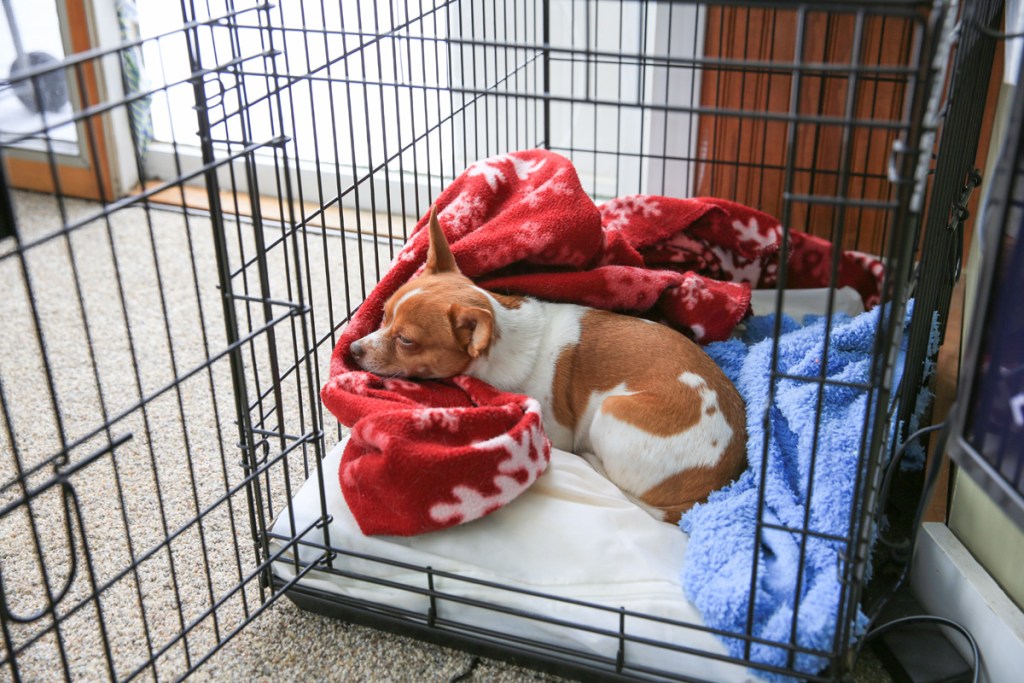
3. Sleeping in a dog bed
Many dogs enjoy curling up or stretching out on their own comfortable beds. When it comes to designs, there’s certainly no shortage of options. You can choose from traditional round dog beds to those that are built like miniature sofas, chaise longues, throw pillows, or canopy beds. What matters is that the bed is comfortable and will provide your dog with a good night’s sleep.
Match the bed to your dog
Orthopedic beds with a firm, dense, memory foam mattress are a great choice for older arthritic dogs. According to the AKC, dogs who love to cuddle will appreciate sinking into shaggy soft oversized beds or curling up inside plush tent beds. Large durable mattress beds are a good choice for oversized breeds who like to stretch out at night.
4. Allow your dog to choose his sleeping spot
Some dogs like to change sleeping spots during the night. They may fall asleep beside you on the bed only to move to the couch a few hours later. By morning you may find them snuggled up in their own bed. As long as your sleep isn’t interrupted and your dog doesn’t get into mischief, it’s fine to let him choose where he wants to sleep.
In the end, when it comes to where your dog should sleep at night, what matters is that you and your dog are getting the right amount of sleep to stay healthy. Just make sure when you switch off the lights that your buddy has access to a comfortable place to lay his head whether that’s curled up beside you or in his crate.

